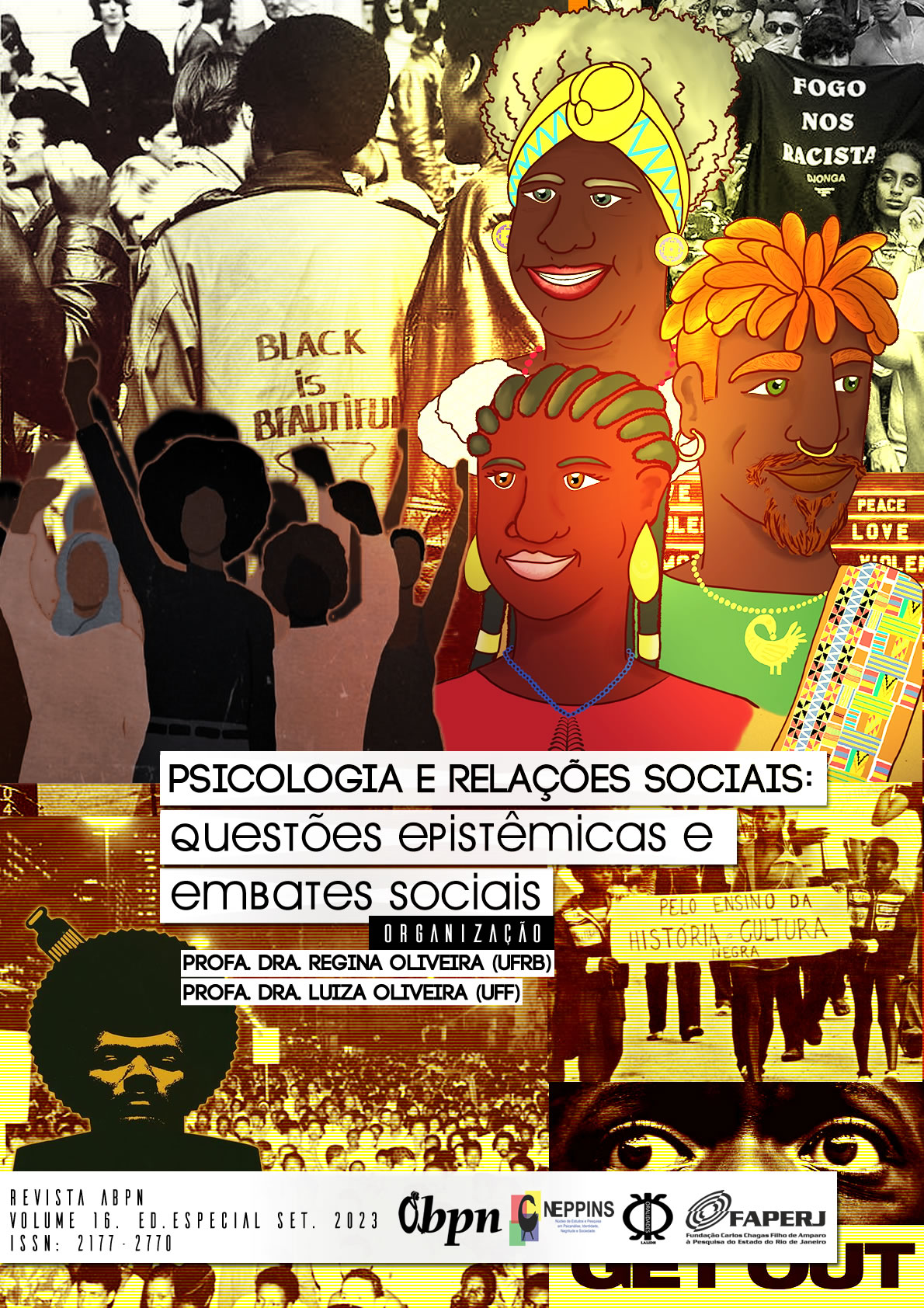GEOGRAPHIES OF NON-BEING: PSYCHIC EFFECTS OF RACISM IN THE PRODUCTION OF SPACE EFECTOS PSÍQUICOS DEL RACISMO EN LA PRODUCCIÓN DEL ESPACIO
Main Article Content
Abstract
This article considers possible associations between Geography (or studies centered on space) and Psychology. The intention stems from the valorization of both branches of knowledge in the reproduction of the experience of black men and women with regard to the metropolis. The perspective considers that racism historically present in societies forged by slavery, as in the Brazilian case, transforms the relations that involve the appropriation and production of urban space, this reality being crossed by psychic effects characterized by the trauma of daily racism, present in interdictions, in the tortuous looks of whiteness and in police violence that culminates in the genocide of the black population. All these elements are part of a theoretical intertwining that has the recognition of Frantz Fanon's theory as an elementary feature, especially for its extraordinary contribution to psychiatric studies involving racism and the colonial question, but also for its potential incursion into spatial dynamics.
Article Details

This work is licensed under a Creative Commons Attribution 4.0 International License.
Copyright Statement
- Authors retain copyright and grant the journal the right of first publication, with work simultaneously licensed under the Creative Commons Attribution License CC-BY 4.0 which allows the sharing of the work with acknowledgment of the authorship of the work and initial publication in this journal.
- Authors are authorized to enter into additional contracts separately for non-exclusive distribution of the version of the work published in this journal (eg, publishing in institutional repository or book chapter), with acknowledgment of authorship and initial publication in this journal.
- Authors are allowed and encouraged to post and distribute their work online (eg in institutional repositories or on their personal page) at any point before or during the editorial process, as this may lead to productive changes as well as increase impact and citation of published work (See The Effect of Free Access).

